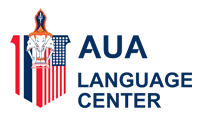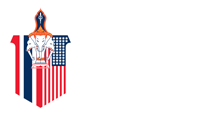‘Intensive Short Courses in ELT’
Super Sundays Workshop Series
The Super Sunday workshops are a new series of training events covering key areas of Communicative Language Teaching. Each workshop will be active, experiential and practical – examining principles behind different skills and lesson types as well as providing fun and active tasks teachers can take away and use in their classrooms.
Workshops for the remainder of 2020 are as follows:
| Core Skills Program (10:30 am – 1:00 pm including 15 minute break) | Skills Extra Program (2:00 pm – 4:30 pm including 15 minute break) | |
|---|---|---|
| Sunday 9th February | Student-Centered Learning | Incorporating Critical Thinking into English Language Teaching |
| Sunday 23rd February | Lesson Planning | Using Stories with Young Learners |
| Sunday 8th March | Checking Understanding | Using Technology in the Classroom |
| Sunday 22nd March | An Introduction to the Lexical Approach | Warmers, Fillers and Breaks |
| Sunday 5th April | Test-Teach-Test | Dictation |
| Sunday 26th April | Teaching Functional Language | Using Authentic Materials |
Requirements
- B1 on the CEFR
- If you are not sure of your level, you can:
- register for an on-site placement test at AUA Chamchuri Square. Contact Phon at [email protected]
- take a free online test to get a general idea: https://learnenglish.britishcouncil.org/en/content or https://www.cambridgeenglish.org/test-your-english/general-english/If you are not sure of your level, you can:
- If you are not sure of your level, you can:
Participants have the following registration choices:
- a) choose and register for any number of workshops and pay for them individually
- b) choose and register for a set of any six workshops
- c) choose and register for a whole series; Core or Extra
- d) choose and register for both Core and Extra
Program fees
- 450 baht per 2.5 hour workshop (includes a 15 minutes break)
- 2,250 baht for a set of any six workshops
- 2,250 baht for either the whole Core or Extra program
- 4,200 baht for the complete Super Sunday Series (Core and Extra)
Each workshop will be active, experiential and practical – examining principles behind different skills and lesson types as well as providing fun and useful tasks teachers can take away and use in their classrooms.
Student-centered Learning –as a participant you will:
- discuss the extent to which students can take control of their own learning
- reflect on your own teaching practices and decide how learner- centered you are, and want to be
- examine techniques and tasks for increasing student autonomy and assess the benefits and challenges of doing so
- take away practical ideas to try out in the classroom
Lesson Planning – as a participant you will:
- examine why we plan and how it can help us teach more effectively
- discuss and decide upon the essential elements for a good lesson plan
- practice writing and assessing main, subsidiary and stage aims
- consider the place of timing and how you can estimate it for planning
- think about how to anticipate and provide possible solutions for common classroom problems at the planning stage
Checking Understanding – as a participant you will:
- consider why asking Do you understand? might not be the best way to check your students’ understanding
- study and practice constructing instruction and concept checking questions
- examine and practice these and other techniques for making sure your students have understood
An Introduction to the Lexical Approach – as a participant you will:
- gain insight and understanding into the lexical approach and its importance in language learning
- examine its implications for classroom teaching
- try out and take away a bank of related activities to use in the classroom
Test-Teach-Test – as a participant you will:
- take part in a test-Teach-Test lesson and reflect on the stages and techniques
- compare this lesson type with the Presentation Practice Production model
- examine the possible advantages and challenges of TTT
- look at typical test activities
Teaching Functional Language – as a participant you will:
- discuss what constitutes functional language and why it is an important part of any language
- consider what similarities and differences there are to teaching grammar, vocabulary and functional language
- explore and experience different ways of teaching and practicing functional language with your students
Each workshop will be active, experiential and practical – examining principles behind different skills and lesson types as well as providing fun and useful tasks teachers can take away and use in their classrooms.
Incorporating Critical Thinking into English language Teaching – as a participant you will:
- clarify your understanding of the definition of critical thinking and discuss its importance in education and language learning
- review Bloom’s taxonomy and examine on a practical level how we can relate this to language learning
- assess other critical thinking activities such as thinking routines and consider how to apply them to your classroom
Using Stories with Young Learners– as a participant you will:
- look at examples of different kinds of stories and how they can be used in your classroom to practice / improve both language and skills
- learn how to involve, engage and involve your students using stories
- grow your awareness of different story types and task types for different aged learners
Using Technology in the Classroom– as a participant you will:
- consider the advantages and challenges to incorporating technology into your lessons
- learn how to ensure technology helps rather than overcomplicates teaching
- examine a set number of technological tools and assess how you would / would not choose to use them with your classes
Warmers, Fillers and Breaks– as a participant you will:
- learn the difference between these three things and discover when and how to use them for both lanaguge learning and classroom management purposes
- take part in demonstrations of these tasks and take away a bank of these activities for your class
Dictation– as a participant you will:
- compare your dictation experiences as both a learner and a teacher
- discover ways to bring engagement and involvement to lessons through dictation activities
- take part in the activities as a student and learn how to use and manage them
- examine what skills and language each activity practices and develops
Using Authentic Materials– as a participant you will:
- clarify your understanding of what defines authentic material
- examine the possible advantages and challenges to using them
- gain ideas of authentic materials you can use in your class, as well as how to find them
- share authentic materials task ideas
Course Location
This course takes place at AUA, Chamchuri Square in Bangkok, Thailand.
AUA Chamchuri Square, Bangkok is the largest branch and home to the corporate offices. It is located at the Sam Yan MRT train station, and a short walk to the Sala Dang BTS train station. AUA is located on the 21st floor.
Contact information
Ms. Sopida Thip-aksorn (Phon)
Program coordinator, Professional Learning Department
[email protected]


